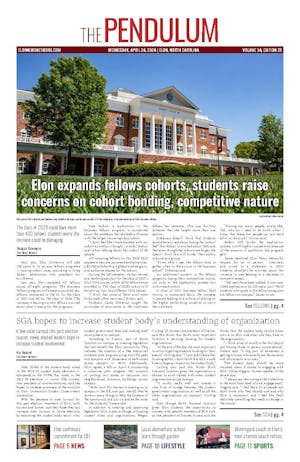ENN: Exclusive Interview with Ginna Claire Mason
Elon News Network sat down with the class of 2024 commencement speaker Ginna Claire Mason ‘13 ahead of the 2024 graduation ceremony. Mason toured all around campus and saw all the changes that have been made since her time as an undergraduate at Elon University. Mason spoke about her experiences at Elon, from mentorship from her professors to having many opportunities on campus, and said she is grateful for the chance to come back.



